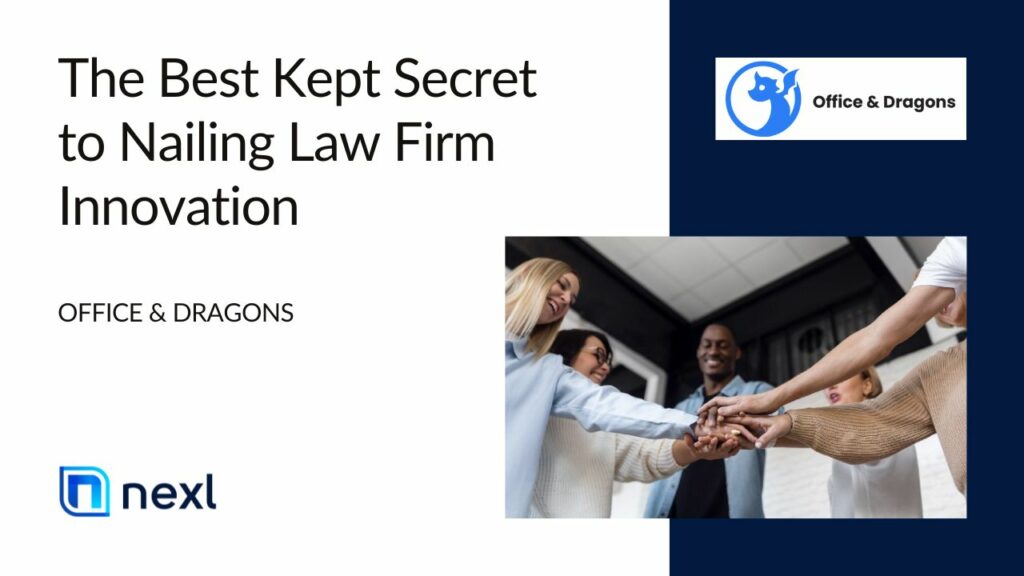An in-depth look at using culture to drive innovation as a group project
Innovation is critical to the continued success of law firms. However, it is hard to get it right. What is the missing piece when trying to tackle innovation?
There is a lot of talk about innovation in the legal space. From various discussions on ways to boost your law firm’s potential, to doomsday-style articles about the incoming extinction of lawyers by AI robots, innovation and other concepts that fall under its umbrella have long been the subject of endless hype.
Despite the constant discourse, the actual innovation in law firms has been less about the creation of systems or deliberate efforts to reimagine the legal process and create infrastructure for big changes. It has been more about slow incremental gains or quick wins. While there’s certainly nothing wrong with small incremental changes, and in fact, going for a low-risk and well-considered quick win is advised particularly when starting out. However, this must be backed up with an underlying process that has everyone on board, as it fundamentally changes the way work is not only done, but thought of.
It’s been asked over and over why the legal profession seems immune to change. When asked why, the answer usually boils down to, “Lawyers are resistant”. Some people posit, however, that the law is all about innovation, and lawyers are constantly innovating with the law. But it seems that this hasn’t trickled down to the business of law.
While we can attribute this to the stereotype of the conservative personalities of lawyers, the disincentive to change seems to come from systematic issues. The stronghold of the billable hour has been a huge and widely discussed barrier. It has often been cited as an enemy to efficiency. Critics often, and in my opinion unfairly, place all the blame on its shoulders. While it presents limitations, it is possible to innovate and maximize the efficiency of this model. The profit per equity partner model also makes it difficult to convince partners of the need for long term investments. This is because such investments mean money out of their own pockets which may have no immediately foreseeable returns.
ARTICLE BY THE TEAM AT OFFICE & DRAGONS






